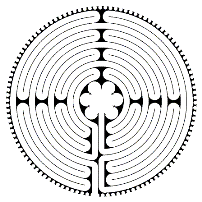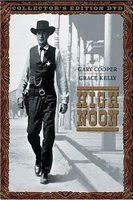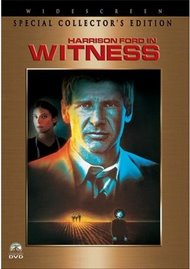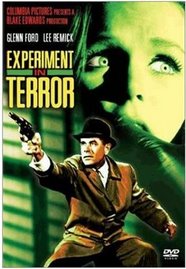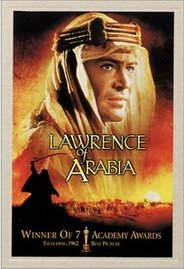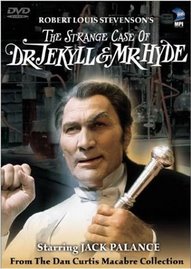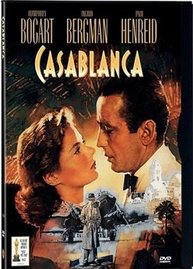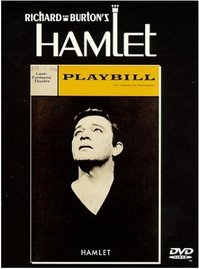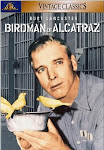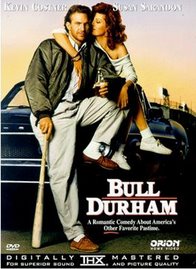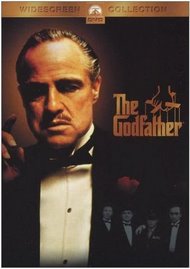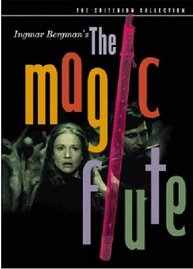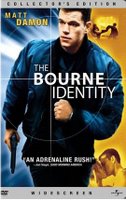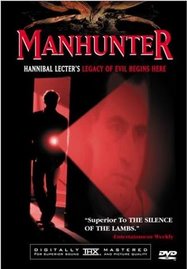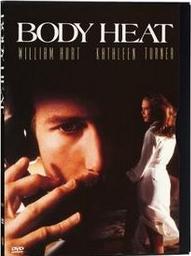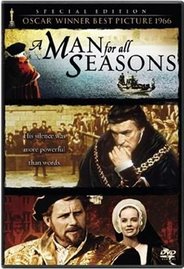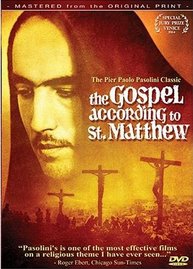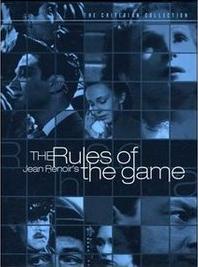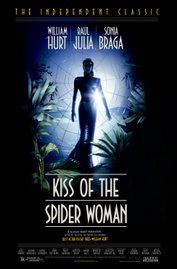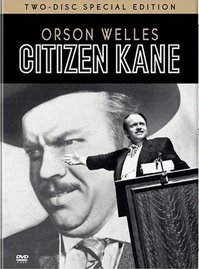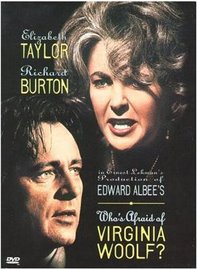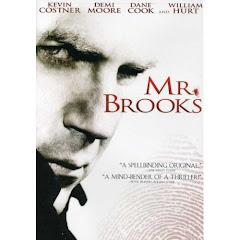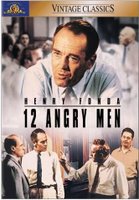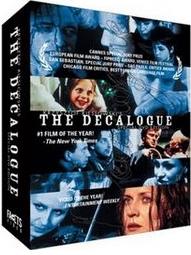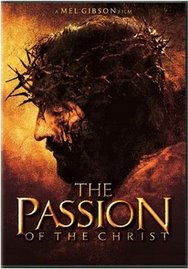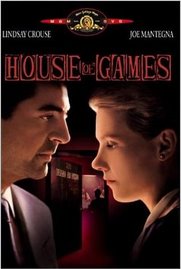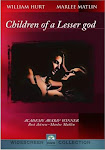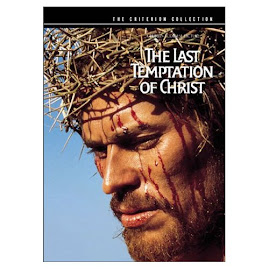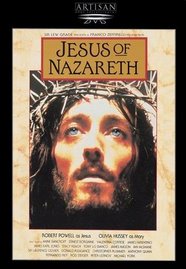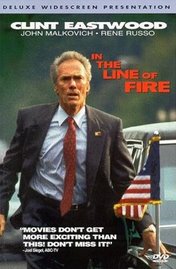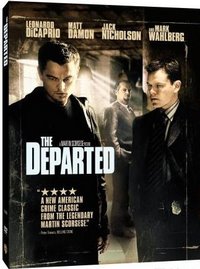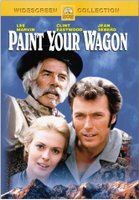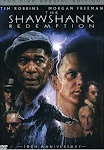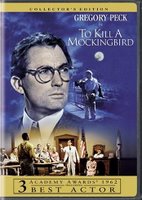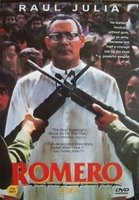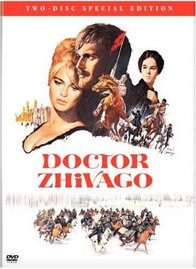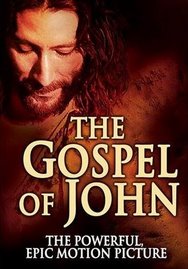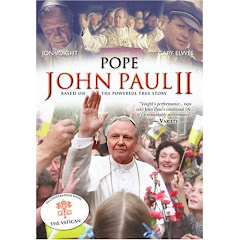
In the same year “Experiment in Terror” came out, 1962, David Lean directed Lawrence of Arabia,” based on the story of T.E. Lawrence. I organize the story as follows:
1. Where are you coming from? [The hero is seen in his or her ordinary world.]
Out of the darkness of a black screen comes an overture that tells us the themes of the story in music. Then the opening credits roll out as we see a motorcycle rider prepare and then ride off. Speed down a country road, passing signs of danger ahead with only slight slowing, only to come up over a hill and spot two boys bicycling on the road. The motorcyclist flies off the road trying to avoid a collision with the children. We learn later that the motorcyclist was Lawrence (Peter O’Toole).
At Lawrence’s funeral some say he was the most extraordinary man they’d ever met. Lord Allenby agrees but says he really didn’t know Lawrence that well. Jackson Bentley, a reporter, responds that Lawrence was a “shameless exhibitionist.”
Lawrence, when he was lieutenant in the British Army, was stationed in Cairo on Murray’s staff. Though clearly a well-educated man, he exhibits a dangerous trick to his comrades when he slowly moves his fingers up a burning match stick before he puts it out. When another tries it, he cries out in pain. In response to the fellows asking what the trick is to not feeling the pain, Lawrence says there is no trick. He feels the pain, but doesn’t mind that it hurts.
2. Where are you wanting to go? [The hero is called to adventure.]
He almost shows this trick again after meeting with Murray and a French diplomat, Dryden, where Dryden convinces Murray to let Lawrence be assigned to do some work for Arab Bureau. Though Murray protests since he has already assigned Brighton to advise Prince Feisal, Dryden prevails. Dryden wants Lawrence to “find out what Prince Feisal’s intentions are.” Lawrence leaves with his guide, Tafas, shortly thereafter to find Prince Feisal.
Lawrence learns more about live on the desert from Tafas. They become friends and as a mark of their friendship Lawrence gives Tafas his handgun.
When they reach a well, Tafas tells Lawrence about the importance of water in the desert and how the various Arab tribes regard them. While Lawrence rests and plays with his compass, Tafas sees a rider coming in the distance. Tafas suddenly makes for the handgun. The rider shoots Tafas with his rifle. The rider, Ali (Omar Sharif), and Lawrence get into some biting arguments. “You are angry, English.” Lawrence says: “So long as the Arabs fight tribe against tribe, so long will they be a little people, a silly people, greedy, barbarous, and cruel – as you are.” Finally Ali offers to take Lawrence to Prince Feisal, but Lawrence refuses to ride with him. “Have you no fear,” asks Ali. “My fear is my concern,” says Lawrence.
3. What are you waiting for? [The hero is reluctant.]
After Ali rides off, Lawrence proceeds by himself with Tafas’s body carried by his camel. Lawrence eventually runs into Colonel Brighton after singing a tune that echoes among the tall desert mountains. (“I’m the man that broke the bank at Monte Carlo...”) Brighton tells Lawrence that Prince Feisal knows he is coming. He also tells Lawrence about the bloody battle the Turks won over Prince Feisal’s men at Medina and how it has lowered morale.
Just as Lawrence and Brighton come to a place where they can see Prince Feisal’s encampment, aircraft strafe and bomb it. We see Prince Feisal (Alex Guinness) for the first time riding a white Arabian stallion, raising his sword and chasing one of the planes. He yells to his people: “Stand and fight!” Then out of a cloud of smoke appears Lawrence in front of him. Prince Feisal tells Lawrence that his people are not used to what modern weapons can do, not used to explosives and machines like the enemy has. As Brighton had suggested earlier, Prince Feisal agrees to move his encampment further away and out of range of the war planes.
4. What are your wise ones generally advising? [The hero encounters a wise one.]
In Prince Feisal’s tent that night, a wise servant of Prince Feisal recites from the Koran. Later when Prince Feisal recalls a verse, Lawrence takes it up and completes it. Brighton and Lawrence continue to listen and then Ali arrives.
Prince Feisal and Brighton discuss support from the British. Brighton says he cannot supply Prince Feisal, except through Aqaba and the Turks have 12-inch guns there. The British Navy has more important matters to attend to, like protecting the Suez cannel. Ali is unimpressed with Brighton’s answer when he suggests that Prince Feisal fall back to Yenbo. When asked his opinion, Lawrence says that Yenbo is far from Damascus. Dreaming about Damascus won’t get you there. Prince Feisal asks if Lawrence has been there and is answered with an appreciative yes. Lawrence adds “It’s time to be great again.” Brighton is frustrated by Lawrence’s knowledge. Prince Feisal closes the discussion but has Lawrence stay behind.
Prince Feisal tells Lawrence that what is needed is what no man can provide. “We need a miracle.”
Lawrence walks out alone. Wanders over the sand dunes. Stares off, contemplating what to do. The boys who would be Lawrence’s servants follow him and try to wake him by rolling a stone down a dune. Lawrence does not break his concentration, but grasps the stone as if to squeeze the water of an answer out of it. Then he finally sees it: Aqaba! The first step in the strategy is to capture Aqaba, not from the sea, but from the desert.
5. What are the pros and cons of the issue being decided? [The hero passes through the first threshold.]
When Ali learns of Lawrence’s idea, he is horrified. “The Nefud cannot be crossed.” Lawrence responds that he’ll cross it if Ali will. They will cross with only 50 men and gain allies on the other side of the Nefud, attracted to them by their feat. It’s only a matter of going, says Lawrence. Ali says Lawrence is mad.
Lawrence doesn’t tell Colonel Brighton what he’s up to, but he does talk with Prince Feisal. The prince wants to know in whose name they will ride. Lawrence says they will ride in the name of Prince Feisal of Mecca. That made clear, the men begin their trip.
At an oasis, Ali watches as Lawrence reads. Then Gasim discovers that the boys who would be Lawrence’s servants have followed the war party. When they are about to be whipped because they are outcasts, Ali judges them unsuitable to be Lawrence’s servants. But “Allah favors the compassionate.” So Lawrence protects the boys by employing them. Now Ali sees them not as servants but as worshippers.
Crossing the Nefud is difficult enough, but when they pass over a railway, they will soon face a stretch of desert called the “Sun’s Anvil.” There is no time to waste. So they begin immediately traveling by night, resting during the heat of the day. Though Lawrence drifts off to sleep, Ali is quick to point it out. One of the boys falls off his camel, but is quickly retrieved. The riders spread out as the tortuous anvil continues. When they hit a stretch of rocks, they must walk their camels. But once they reach the “Sun’s Anvil,” the push is on. “God willing” they will reach the other side before sunrise or they will surely die.
Finally they make it across. But Gasim’s camel is rider-less. Lawrence, despite Ali’s warnings, wants to go back after him. Ali says Gasim’s time has come. “It is written.” Lawrence responds by riding off. Ali calls him an English blasphemer. “I shall be at Aqaba. That is written.”
Back on the anvil, Gasim walks and slowly strips off the weapons and bullets he is carrying, as well as his outer garments. After a harrowing trip, Lawrence finds Gasim and rescues him.
When Lawrence and Gasim rejoin the war party, Gasim is helped by his friends, but Lawrence refuses water and a place to rest from everyone but Ali. When he accepts he tells Ali: “Nothing is written.”
As a way of celebrating Lawrence’s feat, Ali gives Lawrence the robes and weapons of a Sharif (having burned Lawrence’s worn-out uniform) and all the men hail him as “El Aurens.”
Then Lawrence goes off by himself to get the feel of his new self, dancing about, raising his golden dagger into the sun. But this self-admiration is short-lived because Auda abu Tayi (Anthony Quinn) arrives with his gun-toting young son. They go back to the war party’s camp and Auda abu Tayi demands an explanation for their use of the water from his well.
Ali and Auda confront each other about past differences between their tribes (“Does your father still steal?” “Does yours still have bastards?”) Lawrence still with raised hands before the son, intervenes before it escalates any further, asking Auda to call off his men (referring to the single boy). After a little more banter about their differences, Auda finally invites them to dine with him at Wadi Rum.
Audar takes Lawrence, Ali and the war party to the massive encampment of Howitat. Once in Auda’s tent, Lawrence and Auda talk about Prince Faisel’s mission. Lawrence’s suggestion that Auda is a slave of the Turks brings provokes Auda and he speaks to his surrounding followers saying he is a river to his people and Lawrence backs off. He finally gets Auda to come with them for his pleasure and after he learns of a great box of money in Aqaba.
Lawrence, Ali, Auda and their now combined war party leave the encampment in force, making their way to Aqaba.
When they arrive within sight of Aqaba, a quarrel builds into a killing and it looks like Auda will withdraw his men. The killer, one of Ali’s men, must die according to Howitat law. If Auda executes the man, Ali will not go forward. Lawrence solves the problem by saying he will execute the law since he has no tribe involved and neither side will be offended. Then he discovers that the man he is to execute is Gasim, the man he rescued from the desert, and he is greatly troubled. Trembling, Lawrence executes the man. In the aftermath, Ali advises Lawrence he should not be ashamed, that he gave life, he can take it. When Auda questions Ali about why Lawrence acted this way, he is told about the rescue. Auda says it was Gasim’s time to die. “It was written.”
6. What are “The Powers That Be” saying? [The hero encounters tests and helpers.]
The rift healed, the war party assembles again and rides for Aqaba. Once there, with the 12-inch guns immobile and pointing to the sea, the war party easily overcomes the Turks who are completely surprised. “The miracle is accomplished.”
Lawrence, bloodied and battle worn, rides his camel to the sea where Ali throws him a garland of flowers. But the honor is short-lived. Auda finds only paper money in the great box, no gold. In their rage, his men have destroyed the communications equipment. When Auda appears to be ready to withdraw, Lawrence writes out a promissory note on behalf of the Crown of England to pay Auda 5000 golden guineas within 10 days. Lawrence will ride to Cairo himself to see that this is accomplished.
On his trip to Cairo, he only has the two boys with him. The trip is grueling. They see whirlwinds in the sands. Lawrence loses his compass in a sand storm. The only way to get to Cairo now is to aim for the sun, since they know they will hit the Suez Cannel sometime. But at one point, one of the boys, Saud, falls into quicksand and neither Lawrence nor the other boy, Ferraj can save him.
During the rest of the trek, Lawrence is dazed. Ferraj eventually has to throw water in Lawrence’s face to keep him from losing focus.
During the rest of the trek, Lawrence is dazed. Ferraj eventually has to throw water in Lawrence’s face to keep him from losing focus.
Finally they hit the Suez and with help from a passerby (who yelled to them “Who are you?”), Lawrence and Ferraj make it to Cairo. Lawrence takes Ferraj past the security guards at the British officer’s club and they make their way to the bar. Lawrence asks for lemonade for both of them and then a bed with sheets, not for him but for Ferraj. Lawrence wants to tell the Powers That Be that they have taken Aqaba. He then prepares to see General Allenby, since Colonel Murray is no longer in charge.
7. What is your real agenda? [The hero reaches the inner sanctum.]
When Lawrence meets with Allenby, with Dryden in attendance, Lawrence debriefs the General and the General acknowledges Lawrence’s great knowledge of the current status of the war. Allenby wants Lawrence to go back, this time to Jerusalem, but Lawrence balks at the assignment. Allenby promotes him to major. But Lawrence explains that he killed two people, Saud in the sand storm and Gasim whom he executed. When the General brushes off such talk, Lawrence realizes that he has not made himself clear about Gasim. It’s not that he felt back about executing Gasim. What troubles Lawrence is that he enjoyed it. “Rubbish,” says Allenby. He won’t hear of a complaint that Lawrence is not fit. Brighton, at this point, says he will recommend a decoration. Allenby takes Lawrence back to the bar and celebrates Major Lawrence.
Allenby and Lawrence move to the patio where Lawrence finally agrees to go back. They talk strategy. Lawrence proceeds to tell the General all of what he needs, including that Prince Feisal wants artillery and that Lawrence will need a lot of money. Lawrence tells Allenby that he has told the men who followed him that Arabia is for the Arabs and wants to assure them that Britain has no ambitions in Arabia. Allenby acquiesces to all that Lawrence wants, letting that answer the Arabia questions. When they are done, Allenby leaves and Lawrence walks back through the bar. He is hesitant to walk among the officers who begin to surround him, but discovers they are crowding in out of a newly found congratulating appreciation.
As Allenby and Dryden walk away Allenby says he doesn’t have to concern himself with the Arabia question. He has orders to obey, “not like that poor devil.” Lawrence is “riding a whirlwind.” Dryden answers: “Let’s hope we’re not.”
8. What facts and reasons are you contending with? [The hero endures the supreme ordeal.]
Jackson Bentley, an American Journalist, arrives at Prince Feisal’s residence hoping to find out where Lawrence is. Bentley tells Prince Feisal that he’s looking for a factual story of a hero to draw the Americans into the war. The prince needs to have his story told, he needs a story to tell. Prince Feisal, who is moving to Cairo to deal with Allenby, a “slim costumer,” tells Bentley that Lawrence is with his army.
Bentley finds Lawrence and Colonel Brighton in the battle field where the war party is destroying the Turkish railways. When Bentley inquires about the seeming disproportion among dead and wounded (more of the former than the latter), he is informed that they have to kill the wounded for fear of what the Turks will do with the wounded if they find them. Lawrence appears at this point to have a horror of bloodshed. He has trouble stopping the men from shooting at a disabled train.
Lawrence then goes to parade atop at train. The men cheer him. But one of the enemy is not dead. He shoots Lawrence in the arm. Lawrence winces in pain, but says “Good, good.” He dares the man to keep shooting. The man does, but does not hit Lawrence. Finally Auda takes the enemy out with his sword.
Many leave afterward, with their annual fill of booty. Lawrence claims that he can be killed only with a golden bullet.
At the war party’s camp, Bentley, sees Ali reading a children’s book on the Parliament. Gathering more facts, Bentley asks Ali if the Arabia he wants would be a democracy and what he hopes to gain from the war. Ali says he hopes to gain freedom. Bentley replies, “There’s one born every minute.” Then he asks why Lawrence is attracted to the desert, he responds, “It’s clean.”
Auda is not happy with his loot, a clock that does not work. He must find something honorable. And he finally finds it when a train with many horses comes along, with one very special, white Arabian stallion. When Auda is questioned about leaving now that he has found what he wanted, he retorts to Brighton that when Lawrence has found what he wants, he too will go home. Brighton calls Auda a fool. Auda replies, in effect, if you don’t see my point then you are the bigger fool.
With winter coming on and the remaining war party still trying to knock out trains, Lawrence asks Ferraj to get him a detonator. Ferraj places one under his shirt, but cannot find it as the train is coming. Lawrence tells him to fetch another. Ferraj goes over a slight hill. Boom. The detonator has gone off and the Turks in the train are bearing down. All know that Ferraj can’t go on with them and that he can’t be left alive for the Turks to find him. No one else will pull the trigger, so Lawrence has to do it to his friend himself. He shoots Ferraj in the head and escapes.
At the winter encampment, Ali now asks what Lawrence will do now, since the war party has diminished to a handful of men. Lawrence wants to go into Deraa. Ali warns him that the Turks will not buy his going native, especially with 20,000 Turkish pounds on his head. Lawrence replies that no one is offering that much for Ali. Lawrence thinks of himself as a prophet. Ali says one more failure and Lawrence will be done. Lawrence asks who does he think he is to tell Lawrence what can be done. “Do you think I’m just anybody?” He claims he can walk on water.
So Lawrence and Ali go into Deraa. Lawrence has an early opportunity to jokingly walk across a puddle of water, but the humor doesn’t last long when some Turkish soldiers pass them by. Lawrence and Ali are arrested. They quickly send Ali away, but detain Lawrence.
The Turkish soldier in charge of Deraa (played by Jose Ferrar) examines Lawrence, singles him out. Says he is surrounded by cattle, referring to the men under his command. He says Lawrence has an interesting face and judges he must be a deserter. Then he pulls off Lawrence’s outer garment to reveal his lily-white skin and pinches it. Lawrence recognizes the gesture and knees the Turk in the groin. The Turk’s response: “Beat him.” And they do, brutally, with a cane, stretching Lawrence face down across a bench, while the Turk watches from behind his office door. Lawrence does not yell out.
When the Turks are done with him, they toss Lawrence out on the street at night. Ali retrieves him.
9. What insights and oversights are emerging? [The hero seizes the sword.]
In their winter encampment, Ali cares for Lawrence who is almost catatonic. Ali has to tell him to sleep and to eat.
Finally, Lawrence tells Ali that he is going. Ali asks why. “I have come to the end of myself.” “A man cannot want what he wants.” Then pinching his white skin, Lawrence says:”This is the stuff that decides what he wants. He will go to Jerusalem where he can be ordinarily happy. “Trust your own people. Let me go back to mine.”
10. How are you going to tell your decision? [The hero takes the road back.]
So Lawrence goes to Jerusalem, borrows an ill-fitting uniform and meets with Allenby. In Allenby’s office, he finds Prince Feisal and Dryden. The price notices the uniform and talks of Major Lawrence not El Aurens. Since Lawrence was apparently unaware of the treaty between the British and the French concerning Arabia, they tell him about it. He requests to be released from Arabia. He says the truth is “I’m an ordinary man.” That what’s holding him back is he doesn’t want to go mad. During the conversation, Dryden discovers that Lawrence’s back is bleeding. As Dryden leaves the meeting, he observes with Allenby and Lawrence remaining behind: “one’s half made and the other wholly unscrupulous.”
When Lawrence returns to Ali and Auda, he brings with him a body guard of mercenaries. He’s not the same man as before. Ali questions the use of “these things,” but Lawrence dismisses his complaints saying that the some of the forming Arab Army will come for Damascus, their new objective, but the best will come for Lawrence.
At a British staff meeting, Allenby wants Brighton to go with Lawrence. The British will shell the Turks.
On the road to Damascus, Lawrence, his bodyguard, and the war party come upon a Turkish column leaving the scene of a village massacre. Lawrence becomes possessed with a bloodlust. Ali cannot persuade him to go around them and on to Damascus. “No prisoners!”
Bentley arrives late at the carnage, saying “Jesus wept.” Finds Lawrence. “Oh, you rotten man.”
11. What are you willing to risk in order to gain what you can only hope for? [The hero experiences a death and a resurrection.]
When Allenby reaches Damascus, chaos abounds. While Lawrence deals with the many who petition the new leaders of Arabia, Allenby practices his casting with a fishing pole, knowing full well that without his help the city’s utilities will not be maintained.
At the Arab Council meeting, Ali and Auda get into an argument about who’s responsible for the collapsing utilities, each blaming the other. When the electrical power goes out, many of the Arabs begin leaving the city.
12. How do you determining that the decision you are discerning is the right one? [The hero returns with the elixir.]
Lawrence, Ali, and Auda are left alone in the Council. Before Auda leaves, he offers to have Lawrence come with him. But Lawrence reuses. “I pray that I will never see the desert again.” Ali follows Auda out and confronts him about Lawrence. Auda turns the question around and Ali admits he loves Lawrence, but also fears him.
A British doctor arrives on the scene and insists on the British taking over the local Turkish military hospital. Lawrence visits it and is overwhelmed by the human destruction. There is no water for the wounded. The British doctor doesn’t recognize Lawrence but calls the scene “outrageous.” Lawrence leaves.
Allenby finally agrees to let Lawrence go home. Prince Feisal tells Lawrence “There is nothing further here for a warrior.” “Old men make the peace.” Promotes him to Colonel, as Dryden and Prince Feisal look on. Lawrence, still dazed at what’s happening, has to be encouraged to say thanks. As Lawrence leaves, Prince Feisal says “What I owe you is beyond evaluation.” Once he’s out the door, Prince Feisal says to Allenby, “Aurens is a sword with two edges. We are equally glad to be rid of him, are we not?” To which Allenby replies: “I thought I was a hard man.” Prince Feisal has the last word: “You are merely a general, I must be a king."
Allenby finally agrees to let Lawrence go home. Prince Feisal tells Lawrence “There is nothing further here for a warrior.” “Old men make the peace.” Promotes him to Colonel, as Dryden and Prince Feisal look on. Lawrence, still dazed at what’s happening, has to be encouraged to say thanks. As Lawrence leaves, Prince Feisal says “What I owe you is beyond evaluation.” Once he’s out the door, Prince Feisal says to Allenby, “Aurens is a sword with two edges. We are equally glad to be rid of him, are we not?” To which Allenby replies: “I thought I was a hard man.” Prince Feisal has the last word: “You are merely a general, I must be a king."
Disguising his disgust at this kind of talk, Brighton leaves to follow Lawrence, but Lawrence has made it out to a military vehicle that hurries down a dusty desert road. As they pass some camel riders, his driver congratulates Lawrence on his “going home.” And just then, a motorcyclist speeds past them.
© 2007 John Darrouzet
QUESTIONS TO PRIME OUR DISCUSSION
1. How does this movie strike you?
2. How does "Lawrence of Arabia" present change in the world we live in?
3. How does it treat judgment?
4. How does it treat progress?
5. What does it seem to be saying about our education?
6. What does it seem to be saying about "liberty"?
7. What is the issue Lawrence must decide by the end of the story?
8. What about value does "Lawrence of Arabia" depict for you?
9. What about mission does "Lawrence of Arabia" evoke within you?
10. What about purpose does "Lawrence of Arabia" ground you in?
11. What about vision does "Lawrence of Arabia" open you eyes to?
12. What about an individual's personal genius does "Lawrence of Arabia" reveal?
Thanks.
John
